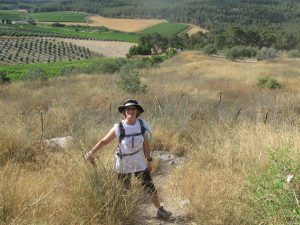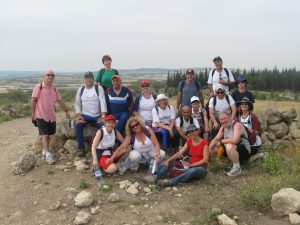Slumdog Adventure on the Israel Trail
Segment 17-18: Netanya to Gaash * After two rather conventional Saturday morning hikes through the fields and forests of Israel, our third hike was a different sort of adventure. It was a Friday afternoon hike that took us first through the urban landscape of Netanya, and then along the seashore from Poleg to Gaash, and ended at the Hof Hasharon National Park with a night-time picnic lit by a nearly full moon and flashlights. Friday afternoon. 4 p.m. We leave a couple cars at the Gaash beach parking lot, and head for Netanya. I have not been in Netanya for some 20 years. Downtown does not seem any different than what I remember. 16:30: We are pleased to find the designated parking lot in Netanya is empty and free of charge! Weather is lovely. We are a group of…


